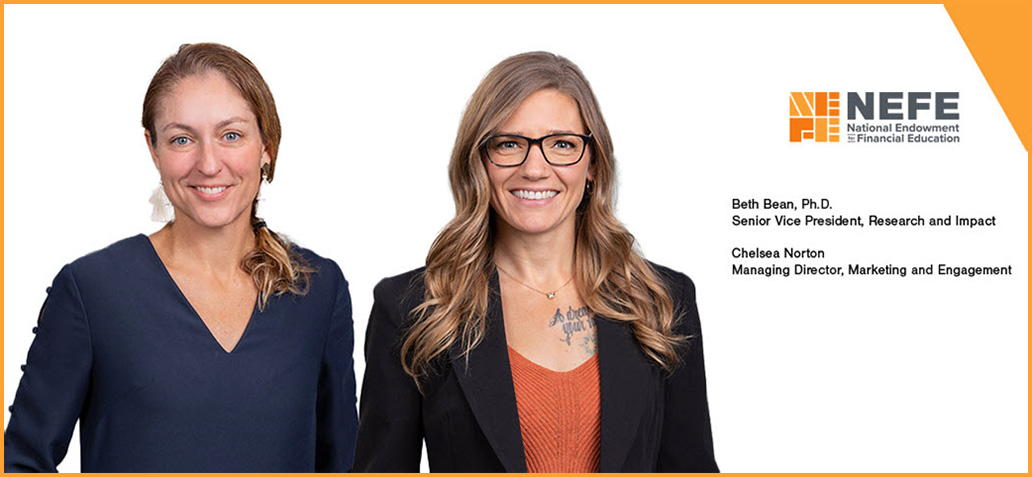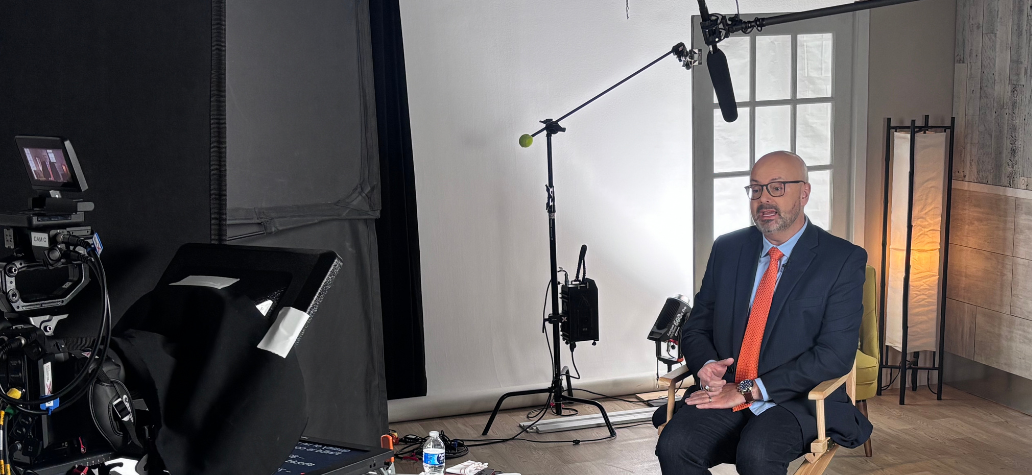We have a strong relationship with the FinCon franchise and community through participation, sponsorships and speaking opportunities. So, when it came to setting up the inaugural Women in Money events, we were honored to be selected to moderate. Dr. Beth Bean and Chelsea Norton participated in events with content creators in different locations, and each summarized their thoughts and experiences in this post. We support the FinCon community, a group of personal finance content creators that range from bloggers to YouTubers, financial therapists to CPAs, and everything in between, in our work to champion effective, quality financial education.
California Dreamin’ for the FinCon Women in Money West Event
Dr. Beth Bean, Senior Vice President, Research & Impact
Donuts. Bracelet making. Whimsically-painted affirmation posters. A large room of women connecting, being inspired and empowered. It could have been a Taylor Swift concert or the lobby outside the Barbie Movie. In this case, it was FinCon’s Women in Money event in Irvine, California.
I moderated as each of the four participants shared unique, personal stories with a common thread of strength to overcome adversity and share their experiences and knowledge to help others. Women helping other women (Madeline Albright would be proud).
In my role, I was able to share some of the work on financial trauma from Chloe B. McKenzie, a former NEFE visiting scholar. Chloe’s research explores the systemic barriers to participation in the financial system and the cumulative harm often associated with our relationship to money. NEFE has discussed her work before, but being in a supportive room of women heightened it’s impact. The panelists brought this individual and systemic pain to life through their vulnerability, authenticity, resiliency, intelligence and wit. They came to the discussion with anecdotes, answers and resources to recover from financial abuse, trauma and how to heal.
As a society, we need to talk about money as well as the trauma that can occur within our families, communities and systems so we can begin to collectively heal. Systemic change starts with individuals.
The audience supported, listened and clapped. There was no judgement. No shame. There was strength.
At NEFE, we champion effective financial education and work toward systems-level change. This work includes better understanding the stories of marginalized populations and continuing to elevate voices and solutions. The stories of Athena, Gina, Gigi and Miranda mattered, and collectively, each story leads to a better understanding of how to improve financial education for all.
Four Things I Learned at the FinCon Women in Money East Event
Chelsea Norton, Managing Director, Engagement
Moderating FinCon’s Women in Money event in Atlanta provided an opportunity for a small, diverse, all-female group of personal finance content creators to gather, learn and share their stories. We discussed how financial trauma impacts women and what personal finance content creators can do better to understand and acknowledge it in their work.
Here are four things I learned:
- This was a diverse, passionate and highly talented bunch. They brought so many unique backgrounds, experiences and perspectives to the table, and it was clear how they each strive to create community for their audiences to help them understand that they are not alone in their financial challenges.
- Nearly everyone has experienced financial trauma. It is important to acknowledge that financial trauma disproportionally impacts certain communities, particularly communities of color. Black women are some of the most financially marginalized people in this country, and we cannot hope to ‘fix’ financial trauma without seeking to aid those who are impacted by it the most. Each person at the “Women in Money” event relayed a specific, personal event or situation in their life that caused financial trauma. It is pervasive in our financial system, which is why it is so imperative to address as we seek to create greater financial wellbeing for Americans.
- Sharing our money stories and challenges out loud can help find community and courage. We discussed difficult topics during our interactive panel session, but the atmosphere was not depressing; on the contrary, the sentiment that permeated the room was one of citizenship. As each panelist spoke, audience members vocalized their agreement and support. During small group discussions, the tables were buzzing and many women connected over the truths they shared out loud with each other.
- Every conference should end with a champagne toast (or something similar). At the close of a meaningful and informative day, each table was presented with a box containing a non-alcoholic bottle of champagne or sparkling juice. During the day, women were encouraged during session breaks to write their anonymized celebrations and achievements on stickies and place them on a community wall. As we closed the event, FinCon’s organizers took turns reading each woman’s note of achievement to the group, and we offered a toast. I can’t think of a better way to wrap up a day of meaningful conversation and connection than women celebrating each other in their struggles and accomplishments.
Those we have met who have chosen to pursue providing financial tools, resources and support to others in the interest of improving financial well-being have a common thread running through their origin stories: They have had a profound experience on their own road to achieving greater financial well-being and they want to share their success so that others can succeed as well.
NEFE is a silver sponsor at FinCon 2024, held Oct. 18-21 in New Orleans.


